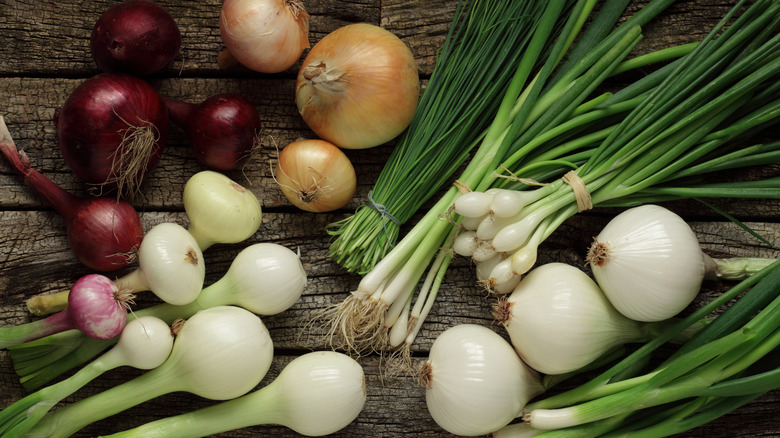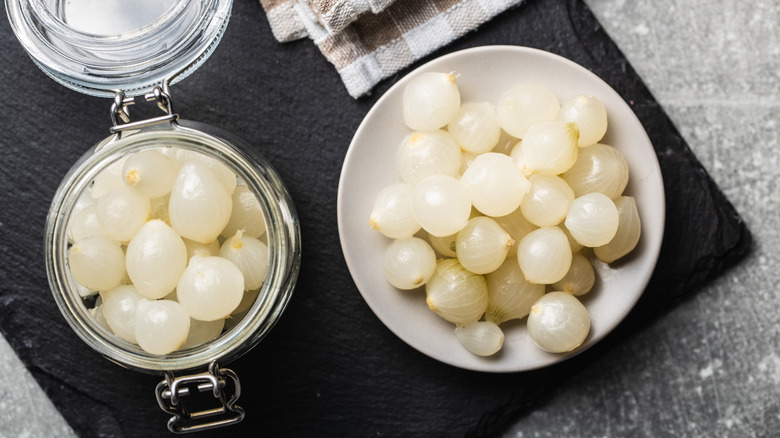What To Look Out For When Choosing Onions For Canning
First cultivated around the world thousands of years ago (via The National Onion Association), onions are still incredibly popular today. According to Statista, Americans consumed on average 20.5 pounds of onions per person in 2021. Given how versatile onions are, it's no wonder — they're delicious in recipes as diverse as salads and salsas to soups and stir fries, as a topping for burgers, and on their own when deep fried into onion rings.
And while onions will generally last for a few months when stored in a cool, dry place, not everyone may have the right storage space required, like a cellar or basement at the right temperature and humidity range. Luckily, there are other ways to preserve onions to make them last longer, including canning, dehydrating, freezing, and pickling, though with the caveat that frozen onions are only good for cooking. Since canning foods at home became widely accessible, canning makes for a good option. However, there are a few things you need to keep in mind when canning onions.
The type of onions you choose for canning is important
As a low-acid vegetable, onions must be canned using the pressure canning method to prevent the risk of botulism poisoning, warns Michigan State University. The National Center for Home Food Preservation advises using small onions that are 1-inch in diameter or smaller. Canned Nation also recommends looking for firm onions with a dry and papery outer skin without any spots or moisture, as they are all signs of potential spoilage.
Per a recipe tested by Clemson University, wash and peel the onions, then cover with boiling water After boiling for five minutes, the onions should be packed into clean and hot jars, leaving 1 inch of headspace. You can add salt if desired, using ½ teaspoon to a pint, and 1 teaspoon to a quart. Remove bubbles while leaving a 1-inch headspace. Wipe the rims of the jars, tighten the lids, then pressure can for 40 minutes, making adjustments to the pressure used depending on the altitude that you're at, and whether you're using a dial gauge canner or a weighted gauge canner. Once done, you should also let your pressure-canned onions cool naturally. According to The Shelver, when stored properly, in a cool, dry, and dark place, onions that have been canned at home are good for up to a year while commercially canned onions are good for two to three years.

